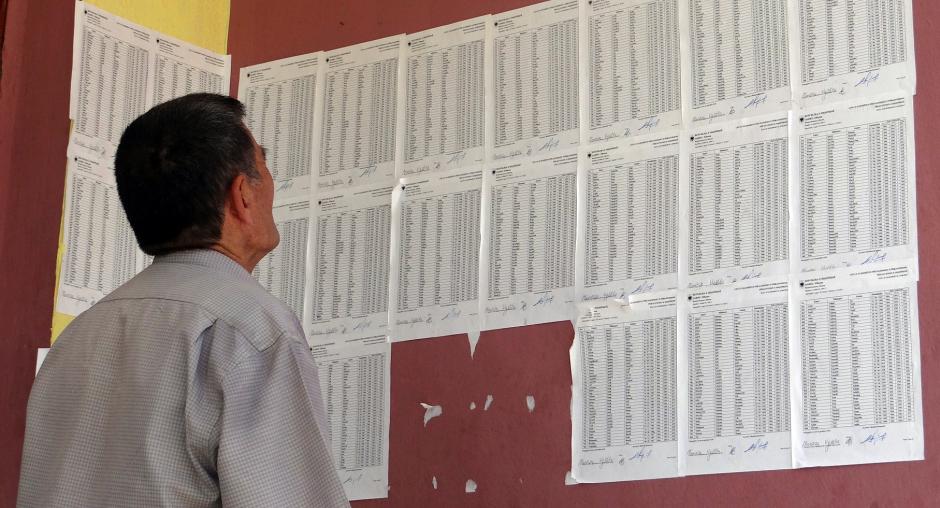Albania’s elections active and competitive, but mistrust between political forces tainted the environment, international observers say

TIRANA, 24 June 2013 – Albania’s parliamentary elections on 23 June were competitive with active citizen participation throughout the campaign and genuine respect for fundamental freedoms. However, the atmosphere of mistrust between the two main political forces tainted the electoral environment and challenged the administration of the entire electoral process, international observers said in a statement today.
Persistent, long-standing differences and continued mutual mistrust between the main political parties undercut the work of the election administration, and the boycott of the Central Election Commission by opposition parties following the controversial dismissal of one of its members meant that it conducted the remainder of its work without the quorum necessary to make key decisions, the statement said.
“This was a substantive election offering voters real choices at a critical time for Albania. It is now time for the country’s political leaders to listen to the people’s verdict,” said Roberto Battelli, the Special Co-ordinator who led the short-term OSCE observer mission. “People were eager to express their will, and should not be held hostage by politics. Politics are a crucial part of elections but, in some ways, party politics have proven harmful, as they have in the past.”
Extensive amendments to the Electoral Code in July 2012 improved the electoral framework, which generally provides a sound basis for the conduct of democratic elections. The observers noted, however, that public confidence in the electoral process suffered because implementation and enforcement fell short in a number of respects.
Sixty-six political parties – the majority of which joined one of two electoral coalitions – and two independent candidates were registered to stand in a largely inclusive process that offered voters a choice. Parties developed programmatic platforms and engaged in substantive political debates, but mutual accusations between the two largest parties sometimes shifted attention away from the substance of the campaign.
“Yesterday, the Albanians demonstrated their faith in the democratic process and their hope for a European future. Now, it is time for political leaders to show they deserve the trust placed in them by respecting the results of the elections, by working together with a sense of responsibility in the new parliament to improved democratic standards and by dealing with economic and social challenges,” said Luca Volontè, the Head of the delegation from the Parliamentary Assembly of the Council of Europe. “Such a sense of responsibility is vital in order for Albania to reach its European goal and should be demonstrated not only over the next few days during the counting process but throughout the coming years of parliamentary and governmental efforts.”
On election day, voting proceeded relatively well, albeit with some procedural irregularities. Closing procedures and the receipt of ballot box at counting centres were assessed more positively. Counting was delayed in many areas due to the late appointment of counting officials.
“Albania is fortunate to have strong political forces that have presented alternative visions for this country, but by not appointing officials to promptly count the ballots, political parties are unnecessarily making their voters wait for the results of these elections,” said João Soares, the Head of the OSCE Parliamentary Assembly delegation. “This is not fair to the voters or to Albanian democracy.”
The large presence of citizen and contestant observers throughout the day generally enhanced transparency, although partisan observers were noted interfering in the process in some cases, the statement said. The killing of a party supporter in Lac and other isolated instances of violence tarnished the start of the elections.
The statement notes instances where public resources were used for campaign purposes and that a number of official government events included campaign advertising and speeches by the governing party. Allegations of vote-buying and pressure on public-sector employees negatively affected the pre-election environment. Campaign-financing regulations did not provide for sufficient transparency.
The media environment was pluralistic and offered a diversity of content, providing voters with the opportunity to make an informed choice, monitoring over the course of the campaign found. Editorial independence was hampered, however, by political influence. While the public broadcaster granted the larger parties equitable news coverage, the monitoring identified a more positive tone towards the ruling party. Women candidates received marginal coverage, reflecting continuing issues with women’s participation in political life.
Effective legal remedy and due process to resolve election-related complaints were not adequately provided, and adjudicating bodies refused to consider complaints or exceeded their jurisdiction in key cases. Contestants rarely submitted complaints to be resolved by the relevant bodies.
“Voters have a right to expect elections that are administered professionally and impartially,” said Conny McCormack, the Head of the OSCE/ODIHR long-term election observation mission. “During our observation over the past six weeks we have seen politics permeate the election administration at all levels. While the voting on election day was assessed positively, our overall findings are preliminary, as much of the counting continues. The ODIHR mission will remain in country to observe the remaining stages of the process.”
For further information contact:
Thomas Rymer, OSCE/ODIHR, +355 69 736 65 93 or +48 609 522 266, [email protected]
Roberto Montella, OSCE PA, +355 69 736 66 74 or + 43 699 10 42 86 81, [email protected]
Bogdan Torcatoriu, PACE, +355 68 692 78 79 or +33 650 39 29 40, [email protected]
